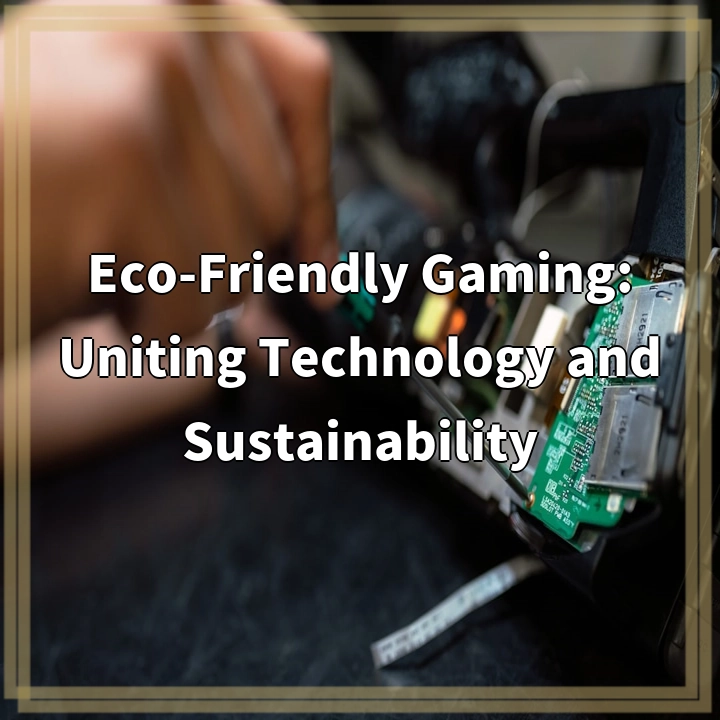Physical Address
304 North Cardinal St.
Dorchester Center, MA 02124
Physical Address
304 North Cardinal St.
Dorchester Center, MA 02124

Eco-friendly gaming refers to the practice of incorporating sustainable and environmentally conscious elements into the world of gaming. It involves considering the environmental impact of gaming hardware, software, and gameplay, and finding ways to reduce carbon emissions, energy consumption, and waste generation.
Eco-friendly gaming may seem like a niche concept, but it addresses several significant real-world problems:
The gaming industry produces a significant amount of electronic waste (e-waste) due to the short lifecycle of gaming consoles, accessories, and peripherals. These devices are often discarded without proper recycling, leading to environmental pollution and resource depletion.
Gaming consoles and powerful gaming PCs consume a substantial amount of energy. The continuous use of energy-intensive hardware contributes to increased carbon emissions and puts additional strain on the power grid.
The production, distribution, and disposal of gaming hardware often involve the use of non-renewable resources and hazardous materials. These practices can have severe environmental consequences, including habitat destruction and chemical pollution.
Many gamers are unaware of the environmental impact their gaming habits can have. Lack of awareness can lead to unsustainable practices, such as leaving devices on standby, not properly disposing of gaming equipment, or using energy-inefficient settings.
The extraction of raw materials to produce gaming consoles, peripherals, and in-game merchandise contributes to resource depletion and can harm ecosystems. Mining for rare metals and minerals used in electronics extraction often involves destructive practices.
Online gaming generates a significant carbon footprint due to data centers, server operations, and high network traffic. The energy requirements of maintaining online gaming platforms contribute to greenhouse gas emissions and the depletion of natural resources.
By understanding these real-world problems, we can explore ways to make gaming more sustainable and eco-friendly. In future blog posts, we will delve into innovative solutions, case studies of eco-friendly gaming initiatives, and practical tips for environmentally conscious gamers.
Addressing the real-world problems associated with eco-friendly gaming requires collective effort and innovative solutions. Here are some potential ways to make gaming more sustainable:
Implementing proper e-waste management practices, such as recycling programs and take-back initiatives, can ensure that gaming hardware is disposed of and recycled in an environmentally friendly manner.
Gaming hardware manufacturers can focus on producing energy-efficient consoles, computers, and peripherals to reduce the energy consumption and carbon footprint of gaming setups.
Adopting sustainable materials and design principles in the production of gaming devices can minimize resource depletion and environmental harm. This includes using recycled materials, reducing packaging waste, and designing products with recyclability in mind.
Creating educational campaigns and resources to raise awareness among gamers about the environmental impact of gaming and providing tips for more sustainable gaming practices can help promote eco-friendly habits within the gaming community.
Encouraging the use of renewable energy sources, such as solar or wind power, for gaming setups can significantly reduce the carbon footprint associated with gaming and contribute to a more sustainable energy future.
Developing and promoting certifications for eco-friendly gaming hardware and software can incentivize manufacturers to prioritize sustainability in their product development and allow consumers to make informed choices.
By implementing these solutions and exploring further sustainable practices, the gaming industry and gamers can contribute to a more sustainable future while still enjoying the immersive and innovative world of gaming.
Eco-friendly gaming is not just about entertainment; it is about making a positive impact on the environment and creating a better world for future generations.
If you’re wondering where the article came from!
#